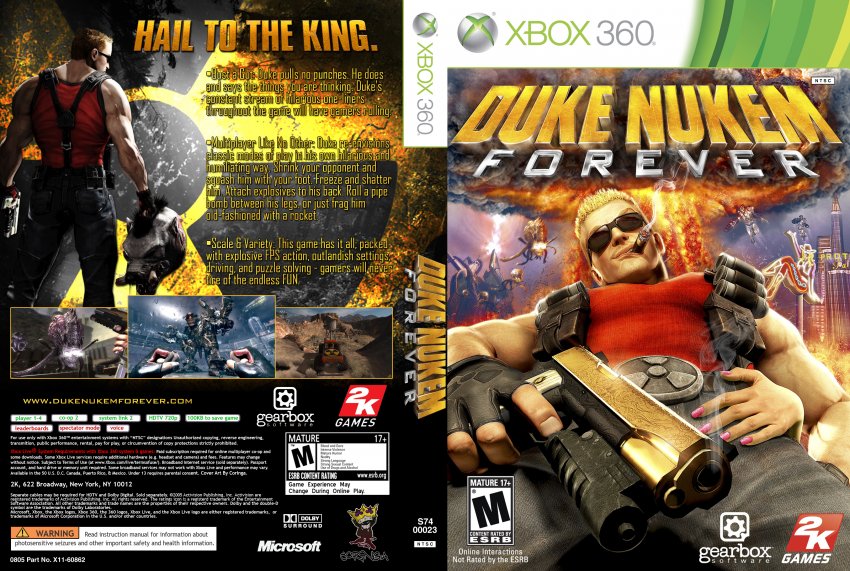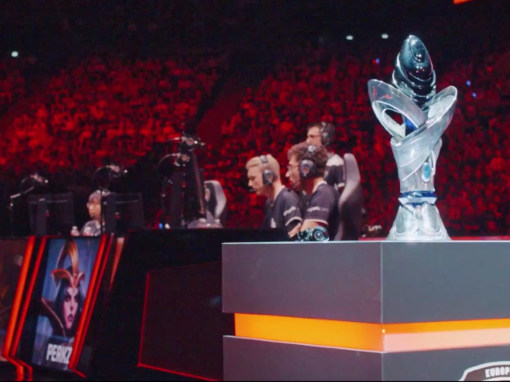Does the ESRB Have the Power to Shut Down Games?
Does the ESRB Have the Power to Shut Down Games?
It recently came out that because of an ESRB mandate, the indie game Ruiner would not be able to releases a physical copy of their game. In an open letter, the publisher said that because of fees leveraged by the ESRB for digital and physical versions of games to require two separate rating processes – and fees – that the small company would not be able to release a limited, physical edition of their game.
Because of this, many have taken to the internet to ask how the ESRB could shut down a game’s release, and how it even got that power. The short answer is that it doesn’t have that power, not exactly. The ESRB is essentially just like the film industry’s rating system (the MPAA). They are both organizations created by the industry to self-regulate. It’s technically not enforced by any laws or government, but in 1994, after games like Doom and Duke Nukem made the news, the industry regulated itself out of growing pressure. Anyone who makes a game can release it without a rating, but, like with movies, most retailers will refuse to sell it if it doesn’t have a rating. So although the system is technically voluntary, if anyone wants to make money from their game, they will have to rate it.

Traditional ESRB Rating
Ruiner’s issue is that five years ago the ESRB created a way for companies to fill out a questionnaire for games that were only releasing digitally. It would make the process much faster for a marketplace that was increasingly going digital. However, a newer mandate now requires developers to fill out two forms, a digital and physical release form, which costs extra money. So it wasn’t as if the ESRB targeted Ruiner so much as the developers didn’t account for the cost everyone pays.
But this also brings up the Loot Box controversy. Many hoped the ESRB would step in as a government watchdog of sorts, but as a non-profit organization, it doesn’t have an opinion of gambling per se, though it has given many games Mature ratings for nudity or just sexuality, like Dead or Alive Beach Volleyball.
In many ways, it is far less powerful than people think. For instance, Steam doesn’t use the ESRB at all, and they are probably the only major digital marketplace not to. As the largest marketplace for video games, almost no noise has been made about Steam’s self-regulated process, which does beg the question if the ESRB is entirely necessary. It didn’t respond to Loot Boxes the way the community wanted, and many developers feel it is just unnecessary fees for titles people can understand.
Though it’s unlikely the ESRB will ever go away, it does raise interesting questions for its future if Steam’s hold on the marketplace continues to grow and if smaller, indie developers begin to protest its purpose.
RECENT VIDEOS
TRENDING NOW
The Switch Continues to Run Into Memory Issues Read Now
Super Mario Odyssey Is the Fastest-Selling Super Mario Game in US History Read Now
FREE GAMES FOR THE MONTH OF NOVEMBER Read Now
Fortnite: Battle Royale Hits 800,000 Concurrent Players Read Now
Worlds 2017 Semi-finals Recap: Samsung Galaxy vs Team WE Read Now
Also…
Don’t forget to check out some of our other weekly pieces, The LoL Weekly Preview, Recap and Highlight, as well as something I’m Forgetting and Week in Review.
sign up for our newsletter
GET THE LATEST NEWS.
NØ SPAM. MUCH INFO. WOW.
sign up for our newsletter
GET THE LATEST NEWS. NØ SPAM. MUCH INFO. WOW.
FOLLOW EKGAMING ON SOCIAL MEDIA
CRITICIZE US!
©2017 EKGAMING. All Rights Reserved. Designed by EKGAMING




